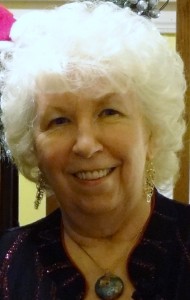The young man who robbed me was 24 years old. When he was arrested, his arms were both covered with needle-tracks. He was addicted to injectable cocaine. The police officer who had asked me in the very beginning if I thought he was on drugs at the time of the robbery believed I was probably mistaken when I said no.
The officer said that if the burglar had not been on drugs at the time, he would — in all likelihood — have been much more desperate and my life would have been in much greater danger.
After a thorough investigation, the police determined that this young man was responsible for up to 300 break-and-enters over the preceding year. It was pretty much a full-time job for him.
His method of operation was, apparently, much the same in each robbery. He would knock on a door — it was pretty easy at our house as the outside door did not lock and it opened into a little porch where the inside locked door was not visible from the sidewalk — and if he didn’t get a response, he would find a way in. (If he did get a response, he would name someone he was looking for and would be most apologetic when told that there was no one there of that name.)
I had been feeling guilty about that key which we always left on top of the electric box in that little front porch. The police officer told me it wasn’t a good thing to do and we should stop doing it but he assured me that the burglar would have got into the house anyway. If the key hadn’t been there, he would have broken in.
Once in, he would — presumably on his own — locate the garbage bags and then methodically rob the house. When he had everything he wanted — this always amazes me — he would call a taxi and leave with the garbage bag over his shoulder.
Leaving our house, he didn’t call a taxi but he walked up the street and caught a cab at the taxi-stand on the corner. When I try to picture this whole scene, I can imagine that he didn’t look out of place: there’s a laundromat in the next block from our place and it was not unusual to see young people walking along Clyde St. with a full garbage bag slung over a shoulder.
In all those 300 break-and-enters, I was the only person he ever encountered.
I sometimes wonder how he felt, upstairs in our house, when he heard the front door open that day. After all, I could have been anyone: a bunch of big guys, a parent with a gaggle of hungry kids, a housekeeping service. Surely he spent a few anxious minutes until he discerned — with relief, no doubt — that it was a lone female.
From the police point of view, this was a very significant arrest — 300 break-and-enters solved in one fell swoop. I was very important to them and they were careful to keep me in the loop. I can’t remember now whether I actually talked to anyone in the Crown Prosecutor’s office but I had sessions with the police going over the evidence and the testimony that I would give as the Crown’s only witness.
I didn’t look forward to it but it seemed inevitable.
The details of what happened in the next few weeks are now lost to me but eventually, I phoned someone — the police or the Crown Prosecutor’s office — and asked what was happening. I was dealt with quite impersonally and summarily and I was told that there would be no trial, that the burglar had pled guilty to seven counts of break-and-enter, one count of armed robbery and one count of forcible confinement. The person I spoke to didn’t know any more than that.
Somewhere, in my completely disorganized files, there’s a small newspaper clipping that appeared a few weeks after that conversation. It was under “Court briefs” and it described — briefly — the robbery and the guilty plea. He was sentenced to seven years in prison.
It was the first time I had ever seen his name.
(There’s still more to come.)


